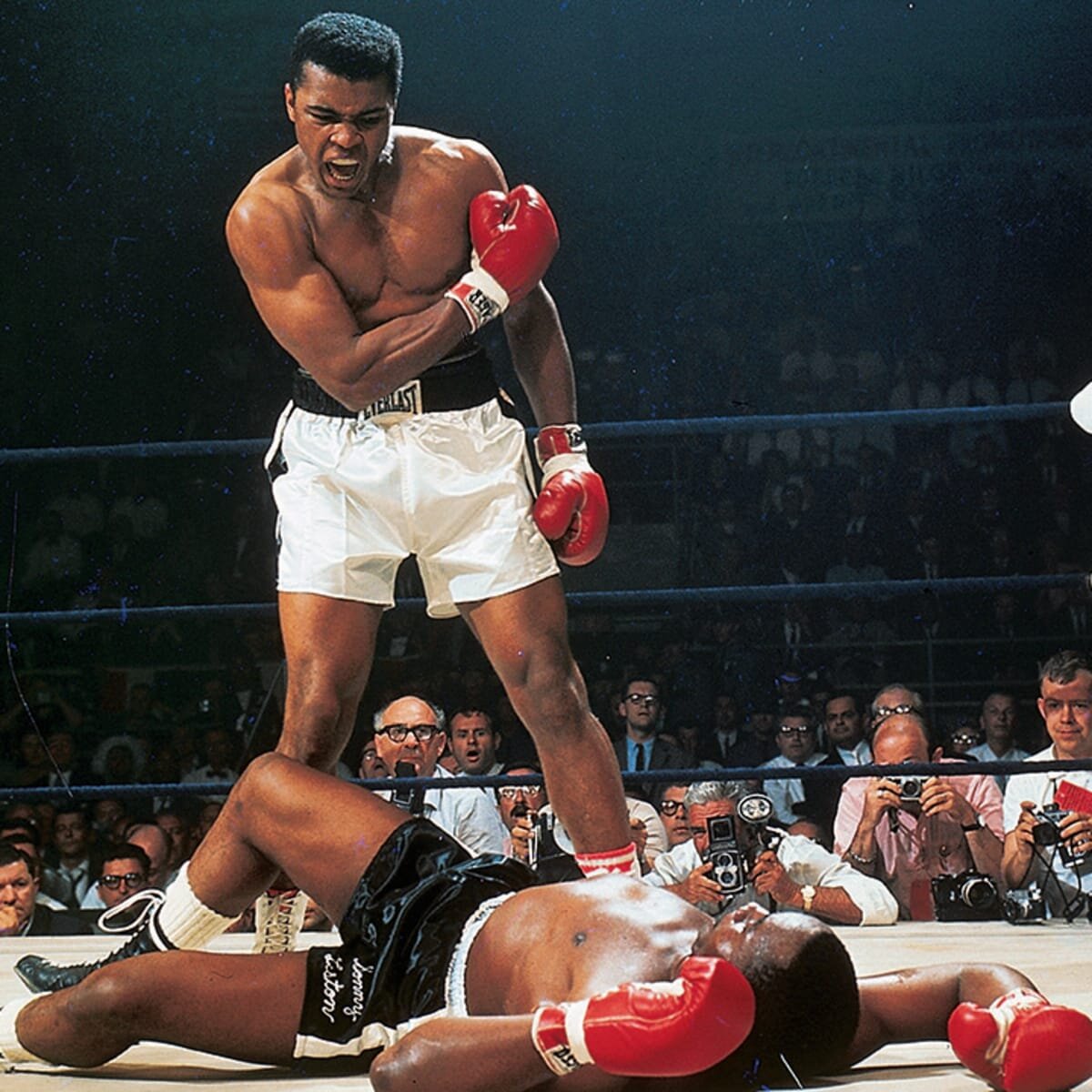
“Sports and Politics Don’t Mix”
This is a dual-perspective piece that highlights the similarities within the generational activism of Muhammad Ali and Colin Kaepernick. This copper wire sculpture is made to show the most iconic image of Muhammad Ali knocking out Sonny Liston from one perspective and the most iconic image of Colin Kaepernick taking a knee as a form of protest from another perspective. The base of the piece is a collage of articles from each athletes generation. Both have made huge sacrifices in their careers to take a stand (Especially when it was not popular).
Video Below
This piece has received over 4 Million views and was featured on Sportscenter and ESPN.
Background
Colin Kaepernick
Colin Kaepernick was an NFL quarterbak drafted in 2011. The following year he led the San Francisco 49ers to the Super Bowl. By 2016, he had begun kneeling on the sideline at games during the national anthem to protest social injustice and police brutality. Although ex-Green Beret Nate Boyer suggested to Kaepernick to kneel rather than sit during the anthem, Kap’s actions would soon be met with a wave of condemnation for “dishonoring the flag and country”. After later receiviing criticism from Donald Trump, Kaepernick responds: “He always says make America great again. Well, America has never been great for people of color. That’s something that needs to be addressed. Let’s make America great for the first time.” From this point on, Colin Kaepernick has been fully commited to the fight against racism. He has donated millions of dollars to these causes in which he supports, and has started his own organization called Know Your Rights Camp. In 2017, he received the Sports Illustrated “Muhammad Ali Legacy Award”.
Muhammad Ali
As a three-time world heavyweight champion; gold medal at 1960 Olympics), Muhammad Ali is often referred to as the greatest and most famous athlete in history. But his legacy runs far beyond what he accomplished in the boxing ring. In 1967, Ali was convicted of draft evasion and sentenced to five years in prison for it. Although the conviction was overturned by the Supreme Court, it is no surprise that Ali became an outspoken war critic. His protest cost him thousands of fans, who claimed he was nothing but a “draft dodger”. As the Vietnam War progressed, the national sentiment changed, and people slowly began to consider what he was saying. Muhammad Ali has also pushed racial boundaries by fully embracing black pride and partnering with Malcolm X and other athletes to demand change in the United States. As an outspoken civil rights advocate, critic of the war and government, Ali challenged the status quo and set a new standard for the level of involvement that an athlete could have in civil rights.



